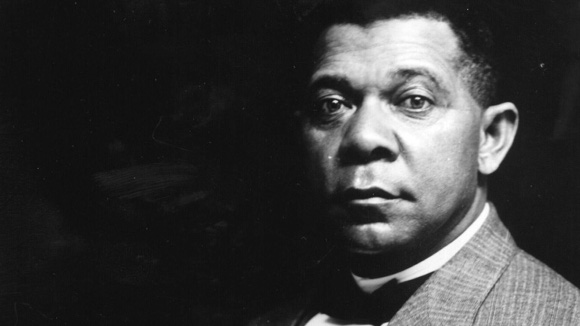
Booker T. Washington was a renowned nineteenth century African American author and most importantly advisor to presidents of the United States. Besides being a remarkable orator, he was also an educator. Washington came a long way from slavery to eventually become a prominent leader and championed African American’s rights.
Booker Taliaferro Washington was born on April 5, 1856 to a slave family in Hale’s Ford, Virginia. Upon the 1865 Emancipation Proclamation, they gained their freedom and settled in West Virginia and young Washington worked his way through Hampton Institute. He received his higher education from Virginia Union University. A historically black college, the Tuskegee Institute recognized him as their first leader after Hampton Institute president, Samuel C. Armstrong recommended him. Moreover, he played a key role in the establishment of West Virginia State University in 1891.
As he witnessed peak in black people’s lynching in Southern States, he raised his voice against it in his Atlanta Address of 1895. The memorable speech brought him in the limelight and garnered him prominence at the national level. He represented the last generation of black leaders born into slavery. To further his cause, he made contact with other notable professionals from black communities to come together and pull themselves out of white American’s tyrannical rule. At first he fought for the educational rights of freedmen during the Jim Crow’s discriminatory, post-Reconstruction era in South.
Soon after, Washington became a dominant figure in black politics. He not only won hearts of all other African American communities in the South but also influenced wealthy liberal whites from North to join him. White politicians and other renowned figures at higher ranks in the society respected him and sought his consultation on racial issues and also raised large sums for his cause. In fact, he was conferred upon several honorary degrees from various universities.
Besides, there were several such organizations that criticized Washington, including National Association for the Advancement of Colored People. One of the key figures of NAACP was W. E. B. Du Bois, who saw activism answer to gain civil rights. Therefore, when Washington didn’t support active protest, they labeled him “the Great Accommodator”. Washington was aware of the fact that blacks were highly outnumbered and any sort of confrontation would result in disastrous situation. Thus, the right course of action to eliminate racism would be to seek help from supportive and influential whites. In order to fight against the segregation and disenfranchisement imposed on blacks, Washington went to great lengths.
Multitude of major philanthropists contributed to his cause to promote education through financial means. These philanthropists included figures like Roebuck and Company President Julius Rosenwald and founder of Kodak, George Eastman. African Americans held education as their key to freedom, which rendered Washington to support black’s schools and their education more enthusiastically. Furthermore, he had close ties to national Republican Party leaders. In fact, the two United States presidents during his time; Theodore Roosevelt and William Howard Taft, asked for his advice on several sensitive matters.
In addition to being an educator, he also authored a number of books. He published 14 books including the widely-read autobiography, Up From Slavery, which first came out in 1901. Booker T. Washington’s undying effort eventually helped African American improve their education system, brought financial power and recognition from the U.S. legal system. This effort culminated in achieving enough power to lead the 1960s Civil Rights Movement and having the federal civil rights law passed.
